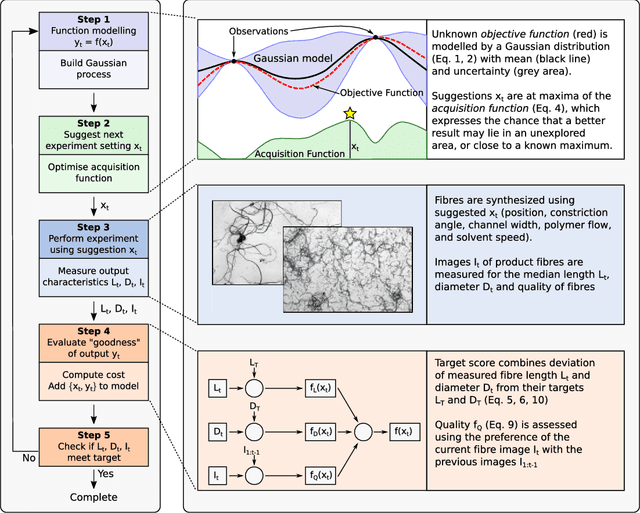Stewart Greenhill
Enhanced Bayesian Optimization via Preferential Modeling of Abstract Properties
Feb 27, 2024Abstract:Experimental (design) optimization is a key driver in designing and discovering new products and processes. Bayesian Optimization (BO) is an effective tool for optimizing expensive and black-box experimental design processes. While Bayesian optimization is a principled data-driven approach to experimental optimization, it learns everything from scratch and could greatly benefit from the expertise of its human (domain) experts who often reason about systems at different abstraction levels using physical properties that are not necessarily directly measured (or measurable). In this paper, we propose a human-AI collaborative Bayesian framework to incorporate expert preferences about unmeasured abstract properties into the surrogate modeling to further boost the performance of BO. We provide an efficient strategy that can also handle any incorrect/misleading expert bias in preferential judgments. We discuss the convergence behavior of our proposed framework. Our experimental results involving synthetic functions and real-world datasets show the superiority of our method against the baselines.
Rapid Bayesian optimisation for synthesis of short polymer fiber materials
Feb 16, 2018



Abstract:The discovery of processes for the synthesis of new materials involves many decisions about process design, operation, and material properties. Experimentation is crucial but as complexity increases, exploration of variables can become impractical using traditional combinatorial approaches. We describe an iterative method which uses machine learning to optimise process development, incorporating multiple qualitative and quantitative objectives. We demonstrate the method with a novel fluid processing platform for synthesis of short polymer fibers, and show how the synthesis process can be efficiently directed to achieve material and process objectives.
 Add to Chrome
Add to Chrome Add to Firefox
Add to Firefox Add to Edge
Add to Edge